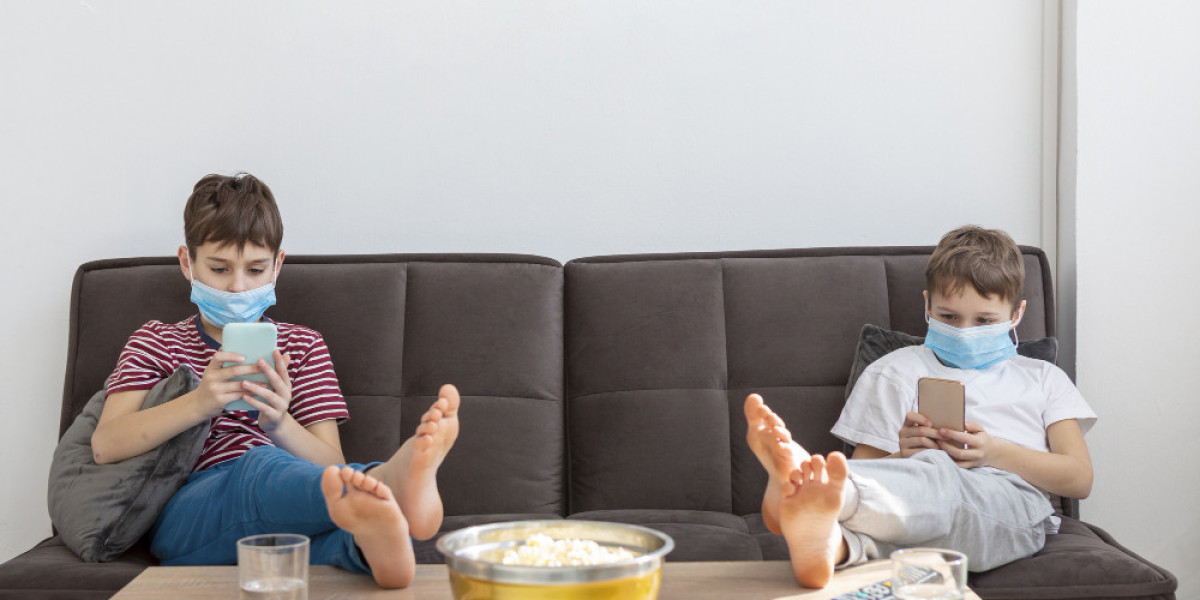Allergies are increasingly common among children and can significantly impact their quality of life. From seasonal sniffles to food sensitivities, managing allergies is an essential aspect of parenting in today’s world. This guide will help parents understand the types of allergies, recognize their symptoms, and adopt effective strategies to manage them.
Understanding Allergies
An allergy is the immune system’s overreaction to substances that are typically harmless, such as pollen, pet dander, or certain foods. When a child with allergies is exposed to a trigger (allergen), their immune system produces antibodies, leading to symptoms that can range from mild to severe.
Common Types of Allergies in Children:
1. Seasonal Allergies (Hay Fever): Triggered by pollen from trees, grasses, or weeds.
2. Food Allergies: Common culprits include peanuts, tree nuts, milk, eggs, soy, wheat, fish, and shellfish.
3. Skin Allergies:Eczema, hives, and contact dermatitis caused by irritants like soaps, detergents, or plants such as poison ivy.
4. Respiratory Allergies: Reactions to indoor allergens such as dust mites, mold, and pet dander.
5. Insect Allergies: Stings from bees, wasps, or other insects.
6. Drug Allergies: Adverse reactions to medications like antibiotics or aspirin.
Recognizing Allergy Symptoms
Symptoms vary depending on the type of allergy and the child’s sensitivity. Common signs include:
· Respiratory Symptoms: Sneezing, nasal congestion, runny nose, itchy eyes, throat irritation, and wheezing.
· Skin Reactions: Redness, rashes, hives, and swelling.
· Digestive Issues: Stomach cramps, nausea, vomiting, or diarrhea (often associated with food allergies).
· Severe Reactions: Anaphylaxis, a life-threatening condition characterized by difficulty breathing, rapid heartbeat, and a drop in blood pressure.
If you notice symptoms persist or worsen, consult a pediatrician or allergist for a proper diagnosis and treatment plan.
Diagnosing Allergies
Early diagnosis is crucial for managing allergies effectively. Healthcare professionals use various methods to identify triggers:
1. Medical History: Discussing symptoms, family history of allergies, and potential triggers.
2. Skin Prick Test: Introducing small amounts of allergens into the skin to observe reactions.
3. Blood Tests: Measuring antibodies (IgE) in the blood to identify specific allergens.
4. Elimination Diets: Removing suspected foods from the child’s diet and monitoring for symptom improvement.
Strategies for Managing Allergies
Once allergies are diagnosed, parents can take steps to reduce exposure to triggers and alleviate symptoms.
1. Minimize Exposure to Allergens:
· Seasonal Allergies: Keep windows closed during high pollen seasons, use air purifiers, and encourage frequent handwashing after outdoor activities.
· Indoor Allergens: Regularly clean and vacuum the house, use dust-mite-proof covers for bedding, and limit contact with pets if they are a trigger.
· Food Allergies: Read food labels carefully, educate your child about safe and unsafe foods, and avoid cross-contamination in meal preparation.
2. Create an Allergy-Friendly Home:
· Opt for hardwood or tile flooring instead of carpets, which can trap allergens.
· Maintain low humidity levels to prevent mold growth.
· Wash bedding, curtains, and stuffed toys frequently in hot water.
3. Medication Management:
· Antihistamines can help relieve mild symptoms like itching and sneezing.
· Nasal sprays and decongestants may reduce nasal congestion.
· For severe allergies, an epinephrine auto-injector (EpiPen) should always be on hand.
Work with your child’s healthcare provider to develop a treatment plan tailored to their needs.
4. Educate and Empower Your Child:
· Teach your child to recognize early symptoms and communicate them immediately.
· Ensure they know how to avoid triggers and use medications, like inhalers or epinephrine, if needed.
· Practice role-playing scenarios to build their confidence in managing allergies independently.
5. School and Social Settings:
· Inform teachers, caregivers, and school staff about your child’s allergies.
· Provide a detailed allergy management plan, including emergency contact information and medication instructions.
· Encourage your child to wear a medical alert bracelet if they have severe allergies.
Long-Term Management and Coping
Managing allergies is a continuous process, but proactive steps can help minimize their impact on your child’s life.
1. Monitor Symptoms:
Keep a journal to track symptoms, triggers, and the effectiveness of treatments. Share this information with your child’s doctor to adjust the management plan as needed.
2. Consider Allergy Immunotherapy:
For persistent allergies, immunotherapy (allergy shots or sublingual tablets) may help reduce sensitivity to specific allergens over time.
3. Stay Updated:
Allergy research is constantly evolving. Stay informed about new treatments and management strategies by consulting healthcare professionals or joining allergy support groups.
4. Emphasize a Healthy Lifestyle:
A balanced diet, regular exercise, and adequate sleep can strengthen your child’s immune system and improve overall well-being.
Supporting Emotional Well-Being
Living with allergies can sometimes be overwhelming for children, especially when they feel different from their peers. Parents can play a key role in fostering resilience and self-confidence:
· Encourage open conversations about their feelings and experiences.
· Celebrate milestones, such as successfully avoiding a trigger or managing a reaction calmly.
· Create opportunities for them to connect with other children who have allergies, helping them feel less isolated.
When to Seek Emergency Help
While most allergy symptoms are manageable, parents should be vigilant about signs of a severe reaction. Call emergency services immediately if your child experiences:
· Difficulty breathing or shortness of breath.
· Swelling of the face, lips, or throat.
· Severe abdominal pain or vomiting after exposure to an allergen.
· Loss of consciousness.
Conclusion
Managing allergies in children requires a combination of vigilance, education, and proactive care. By understanding triggers, recognizing symptoms, and implementing preventive measures, parents can help their children lead happy, healthy lives. Remember, you are not alone in this journey—healthcare professionals, educators, and support communities are valuable allies in keeping your child safe and thriving.
Preventing Cervical Cancer: The Role of Vaccination and Regular Screenings
Anti-Aging Skin Care: Treatments to Restore Youthful Glow






